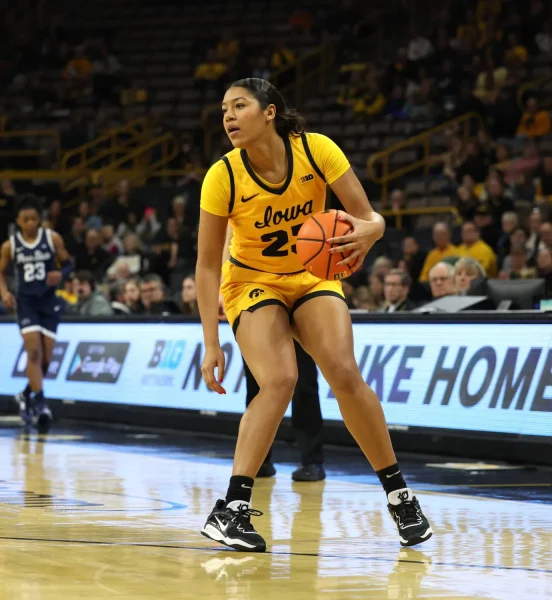When Talent Works Hard
College coaches discuss recruitable personalities.
Johnston football recruit Jack Rutz ’22 prepares to squat weight on Monday, March 8th.
March 11, 2021
Collegiate athletes undeniably possess an above-average athletic skillset. Talent alone, however, appears to often leave players falling short of college rosters. College coaches often look for intangible attributes in the athletes they recruit to their university. Two baseball coaches lend their thoughts in: Rick Heller of Iowa and Ryan Dupic of Concordia University, as well as defensive analyst at the University of Nebraska and former LSU defensive coordinator Bill Busch from the world of college football. Busch recruited multiple first round NFL Draft picks such as Alex Smith to Utah, Joe Burrow to LSU, and Prince Amukamara at an earlier stint at Nebraska.
Unselfishness
Both baseball coaches mentioned this multiple times, citing this as one of the most important attributes they look for. “If a player is truly selfish it will be difficult to change them,” Heller said. “A selfish player can poison your team quickly.”
Dupic has the same beliefs about selfishness. “Selfishness is a big trigger for me,” Dupic said. “If I ask about how things are going and a player only ever talks about how he’s doing in his game, never mentions that the team won or lost… at some point, this is a group game.” Selfishness is not a new cancer to sports, as any sports fan can recall selfish attitudes ruining otherwise promising careers. Recently in the NFL, Antonio Brown’s hall-of-fame caliber career was quickly derailed by the fiasco that was the summer of 2019.
Multi-Sport Athletes
Recently, athletes in large high schools have began to specialize in certain sports, rather than playing multiple sports. For example, a football player may take the winter to lift weights and train for football rather than try their hand at basketball or wrestling. While this would seem to be a great way to get recruited for one particular sport, all three coaches prefer multi-sport athletes. “I like multiple sport athletes, I think that’s very positive,” Dupic said. “It’s good to play multiple sports, because it keeps people healthy, it helps them compete to be a better athlete in general.”
Heller had similar thoughts. “Playing another sport helps in a lot of ways,” Heller said. “Adding more athleticism is a big one. Competing and toughness is another. Dealing with the different dynamics of another sport and just being a part of another team adds to the players experience and maturity.”
Coach Busch did not leave anything up to interpretation. “All the best ones played multiple sports!” Busch said. “[It] shows they have numerous skills and they love to compete! Never is the best athlete in the school a one sport guy. Fast guys run track!” The second best (Check The G.O.A.T. Debate by Joel Kellar) basketball player of all time was a multi-sport athlete. LeBron James was a prolific wide receiver in high school, even being described as the best recruit in the state of Ohio. During the NBA lockout of 2011, the Dallas Cowboys of the NFL were confident enough in James’ abilities as a football player to offer him a contract to play for the team.
Grades
Academic achievement can make or break a recruit’s chances of getting a scholarship. “They are important for sure,” Heller said. “They don’t have to be ‘off the charts’ but they need to show us that they care and have put time into being a good student. We don’t want to have to baby sit a player to get them through college.”
Busch made a point that attendance records are also important. “I look for classroom strain to learn and function in a learning environment,” Busch said. “[I] also always check attendance.”
Coaching at a smaller university in Concordia, Dupic deals with a different situation as academics are more important to the school. “When we make the first phone call, we ask that right away,” Dupic said. “People who do well in the classroom, it says something about them and their work ethic. It’s also a financial thing. At some point, the majority of their money for most people is academics based. We’re not in a situation to have the type of scholarship money where we can just throw a bunch at everybody all the time.” The university of Alabama recently recruited the top ranked football recruiting class in the 21st century, months after winning the national championship. Smart athletes must have a way of winning, as Alabama is tied for having the sixth highest Academic Progress Rate (APR) in the country in 2020.
Collegiate recruiting is all too often oversimplified, and many forget that it takes more than just talent to be part of a top-tier program.
















